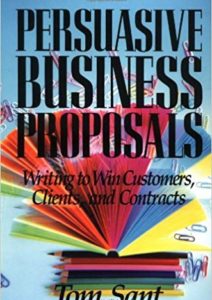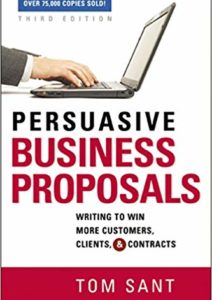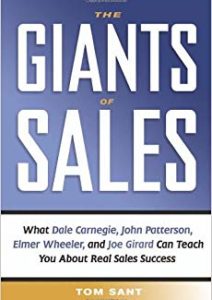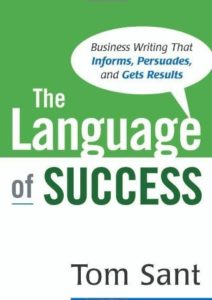Recently I came across a very interesting bit of research. It proved something that we all suspected. And it also revealed something new and important.
The research was about the impact of using big words.
In The Language of Success, I make the point that you can dramatically improve the clarity of your writing if you just write shorter sentences and use shorter words.
Now, research conducted by Daniel Oppenheimer*, a psychology professor at Princeton, proves the part about big words.
People use big words when they’re trying extra hard to sound smart. A survey of undergraduate students at Stanford found that over 86% of them admitted to using big words in their writing in an attempt to make it sound more valid or more intelligent. And nearly two-thirds also admitted turning to a thesaurus to find more complex words to give their writing a boost.
As Oppenheimer points out, our culture reinforces the notion that large vocabularies correlate with high intelligence. The implicit message is that if you’re really smart, you’ll use big words in your writing. And people do exactly that, even though nearly every textbook on writing emphasizes the value of simplicity and directness.
What Oppenheimer did was ingenious. He took six essays that had been written for admission to the graduate program in English and rewrote them, substituting every noun, verb and adjective with a longer synonym taken from the Microsoft 2000 thesaurus. He had his subjects read either the original version of the essay or the one that was made more complex and then decide if the person should be admitted to the graduate program, rating their confidence on a seven-point scale. They were then asked how difficult the writing was to understand, also on a seven-point scale.
I like this experiment because it’s forcing readers to make a kind of “buying decision,” similar to what our clients do when they read our proposals. By forcing them to make a choice in addition to rating the complexity, we get a sense of what impact complex language has on the decision-making process.
What Oppenheimer found was what you probably expected: The more complex essays were rated substantially harder to understand. And the level of complexity had a consistent influence on the “buying decision,” with highly complex essays rated much more negatively than the original, simpler versions. Thus, as Oppenheimer’s paper concludes, increasing the complexity of your writing does not make you look smarter.
“I wish they wouldn’t put such big words in my speeches. I like to know what I’m talking about.”
Oppenheimer ran other versions of the test to make sure the choices weren’t based on the fact that randomly substituting big words for little ones might produce some very odd sounding English. Even when he controlled for style, the effect of big words was the same: people didn’t like reading and preferred the simpler version and think that the author of simpler writing is more intelligent than the author of a complex text.
The source of these lower ratings for writing that is more complex seems to stem from the fact that the big words reduce the fluency with which we can read. Complex language is simply harder to decode.
Oppenheimer’s conclusion is worth remembering when we’re writing a proposal, marketing materials, a sales letter, or preparing a presentation: Although many people “use a strategy of complexity…at campuses and businesses across the country…such strategies tend to backfire.”
Simple words are only part of the solution to making our writing clear, but they’re an important part. As Winston Churchill once said, “Short words are the best words, and old words, when they are short, are the best words of all.”
*Oppenheimer’s study was published in Applied Cognitive Psychology, 20:139-156 (2006).
Related Posts:
- Four Thoughtful Strategies to Make 2015 Your Best Year Ever
- Top Sales Experts Predict the Sales Landscape for 2015
- How To Stick With Good Habits Even When Your Willpower Is Gone













